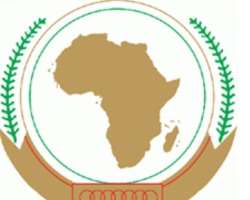Press Statement of the Peace and Security Council of the African Union (AU), at its 342nd meeting

ADDIS ABABA, Ethiopia, November 22, 2012/African Press Organization (APO)/ -- The Peace and Security Council of the African Union (AU), at its 342ndmeeting, open session, held on 21 November 2012, in Addis Ababa, discussed the link between development, peace and security. Council also listened to statements made by the Minister of Foreign Affairs of the Republic of The Gambia, H.E. Hon. Suzan Waffa-Ogoo, and Commissioner for Peace and Security, and the conclusions of the Technical Meeting presented by the Representative of Oxfam, as well as a response from the Permanent Representative of the United Republic of Tanzania to the African Union.
Council expressed gratitude to the support provided by the international community towards the promotion of development, peace and security, in particular the United Nations, the European Union and other bilateral partners.
Council emphasized that the primary responsibility for ensuring development, peace and security in the African continent lies with the African states and peoples. This responsibility is to be carried out within national policies aimed at promoting democracy, rule of law, good and inclusive governance and equitable development, as well as within the instruments and policies adopted at both regional and continental levels.
Council stressed the need to mainstream gender in all development, peace and security efforts on the continent. In this regard, Council welcomed the role of UN Women in addressing the plight of women, children, youth and other vulnerable social groups and stressed the need for full implementation of AU,s instruments and policies relating to women and children.
Council urged the Member States, the AU Commission, the UN, AU partners, civil society organizations and other stakeholders, to cooperate on conflict, security and development linkages. These should include the promotion of national and regional dialogue, structured discussions on situations of risk, cooperation in assessments and planning, staff training exchanges, and practical joint programs at the national and regional levels, with emphasis on conflict prevention and post-conflict reconstruction and development.
Council underscored the need to ensure that African development models are in tandem with the realistic needs of the people. In this regard, Council noted that activities in the promotion of peace, security and stability have to go hand-in-hand with efforts aimed at promoting sustainable development. Council also reaffirmed the importance of the implementation of the relevant AU policies, in particular the instruments relating to the prevention of structural conflicts, as well as the Policy Framework on Post-Conflict Reconstruction and Development [EX.CL/Dec.302 (IX)] and the Framework for the Operationalisation of the Continental Early Warning System [EX.CL/Dec.336 (X)], adopted by the AU Executive Council at its ordinary sessions held in Banjul, The Gambia, and in Addis Ababa, Ethiopia, in June 2006 and January 2007, respectively.
Whilst stressing the necessity of mobilization of additional resources, Council emphasized the need for efficient and balanced utilization of available resources. In this respect, Council stressed the need for the AU to develop holistic implementation and monitoring mechanisms for the existing AU normative frameworks and requested the Commission, to report, in due course, on the development of such mechanisms. Council emphasized the need for Africa to pursue the peace and security, as well as conflict prevention dimensions, in the ongoing inter-governmental negotiations aimed at defining the post-2015 development goals.
Council noted the impact of external debt on economic growth and development of African States and called for more effective policies to address African-specific development problems.
Council underscored the importance of further accelerating African integration with a view to creating more opportunities for consolidating the interdependence between development, peace and security in the continent. In this regard, Council urged Member States to promote policies that facilitate free movement of African people and goods within the continent to anchor the development process.
Council looks forward to the successful conduct of the 50th OAU/AU anniversary as an opportunity that will further boost the essence of the African Renaissance in terms of good governance, peace, security and development.
